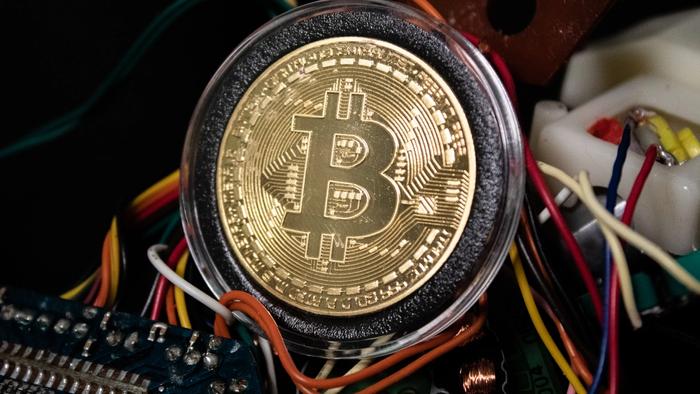The Dark Side Of Decentralization Bitcoin Minings Environmental Toll
Decentralization – the holy grail of the cryptocurrency world. It’s the concept that underpins the very fabric of Bitcoin, allowing transactions to take place without the need for intermediaries like banks. But, as with all things, there’s a dark side to this shining star of decentralized dreams. In this article, we’ll delve into the often-overlooked environmental toll of Bitcoin mining, and explore the unintended consequences of our collective pursuit of financial freedom.

- Unlocking The Future Of Property Ownership
- Unlocking The Power Of Flash Loans In DeFi: A Game-Changer For Crypto Investors
- What Are Smart Contracts And How Will They Revolutionize Business
- Bitcoin Halving: A Catalyst For Cryptocurrency Market Volatility
- The Future Of Blockchain In Real Estate Transactions
Bitcoin mining, the process by which new Bitcoins are created, is a resource-intensive endeavor. It requires powerful computers to solve complex mathematical equations, a process that consumes massive amounts of energy. We’re talking serious megawatts here – the kind of power it takes to light up a small town. In fact, estimates suggest that a single Bitcoin transaction uses enough electricity to power a home for an entire week.
So, where’s all this energy coming from? Well, much of it is coming from fossil fuels, particularly coal and natural gas. These dirty energy sources are not only contributing to climate change, but they’re also spewing toxic pollutants into the air we breathe. It’s a stark reality check for those of us who genuinely believe that Bitcoin is the answer to our financial woes. I mean, is financial freedom worth sacrificing our planet?
But, it gets worse. The mining process itself is shortening the lifespan of electronic components, creating a veritable tsunami of e-waste. These discarded computers, graphics cards, and other gear are ending up in our landfills and oceans, further exacerbating the environmental crisis. And let’s not forget the carbon footprint of manufacturing these devices in the first place – it’s not exactly a trifling matter.
So, what’s driving this environmental catastrophe? Well, in a word: profit. Bitcoin mining is a lucrative business, with many operations around the world raking in millions of dollars in revenue each year. And, as we all know, money talks. The chase for profit is driving innovation, yes, but it’s also driving environmental degradation at an alarming rate.
But, there is hope. Some forward-thinking miners are turning to renewable energy sources, like solar and wind power, to fuel their operations. It’s a step in the right direction, to be sure. And, with the rise of second-generation cryptocurrencies like Cardano and Solana, which use proof-of-stake algorithms, the energy consumption of mining is decreasing.
However, the fact remains that, as things stand, Bitcoin mining is a ticking environmental time bomb. And we need to do something about it, or risk losing the very earth we’re fighting to free ourselves from financial bondage.
Decentralization is a double-edged sword. On the one hand, it allows us to break free from centralized systems and take control of our financial lives. But, on the other, it can perpetuate environmental harm on a massive scale. As we continue our quest for financial freedom, we must acknowledge the unintended consequences of our actions, and work towards a more sustainable future for all.
